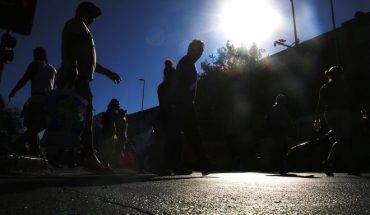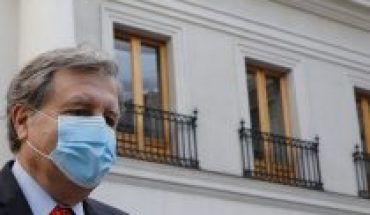Germany is set out on Sunday to impose more drastic measures following the high numbers caused by the Covid-19’s second wave of contagion, including the closure of shops, for fear that the coronavirus will become uncontrollable with the New Year’s Eve festivities. Chancellor Angela Merkel meets sunday with the leaders of the 16 federated states for a new adjustment, as the number of new infections broke records in recent days, as T13 detailed it. Some media refer to this meeting as the “most important summit on the new coronavirus” since the beginning of the pandemic. After six weeks of total closure of restaurants, bars, theatres, cinemas, museums and sports facilities, Germany notes that these restrictions are insufficient.” The situation remains very serious (…) it has even worsened since last week,” Lothar Wieler, president of the Robert Koch Health Surveillance Institute (RKI) warned Thursday. According to him, the epidemic continues to progress because the population has not sufficiently reduced their social contacts. The number of new infections daily grazed 30,000 on Friday and Saturday, well above the daily average of the first wave, which Germany controlled better than many European countries. The record for one-day death broke on Thursday, with 598. The head of the RKI believes that the situation in the country is also due to the “tiredness” of the population, after almost ten months of unreleased impositions. According to several German media outlets, the Chancellor will propose on Sunday that from Tuesday or Wednesday non-food stores, as well as schools and nurseries across the country until at least 10 January. Social contact could be limited to a maximum of five adults from two different households, except from December 24 to 26, when the limit would be 10 adults. Bavaria is one of the regions that did not wait for the crisis meeting to take further action: there are curfews in force since this week in the worst-affected towns. In Saxony, the most affected province, the closure of shops and schools has already been decreed and will enter into force on Monday. There will also be local curfews between 22:00 and 6:00 a.m. In Baden-W’rttemberg, leaving home is only allowed for compelling reasons, i.e. to go to work, buy food or a doctor’s appointment. Until now the Germans were urged to “stay at home” but they had freedom of movement and have never been subjected to strict confinement as in Spain or France, for example. Angela Merkel called wednesday to limit contacts to a minimum, even at Christmas and New Year’s Eve.
translated from Spanish: Germany tightens measures after high numbers of contagion and covid-19 deaths
December 13, 2020 |





![translated from Spanish: [VIDEO] Accidente de famoso basquetbolista en un partido provoca desplome en las acciones de Nike translated from Spanish: [VIDEO] Accidente de famoso basquetbolista en un partido provoca desplome en las acciones de Nike](https://ananoticias.com/wp-content/uploads/2019/02/translated-from-Spanish-VIDEO-Accidente-de-famoso-basquetbolista-en-un-370x215.jpg)